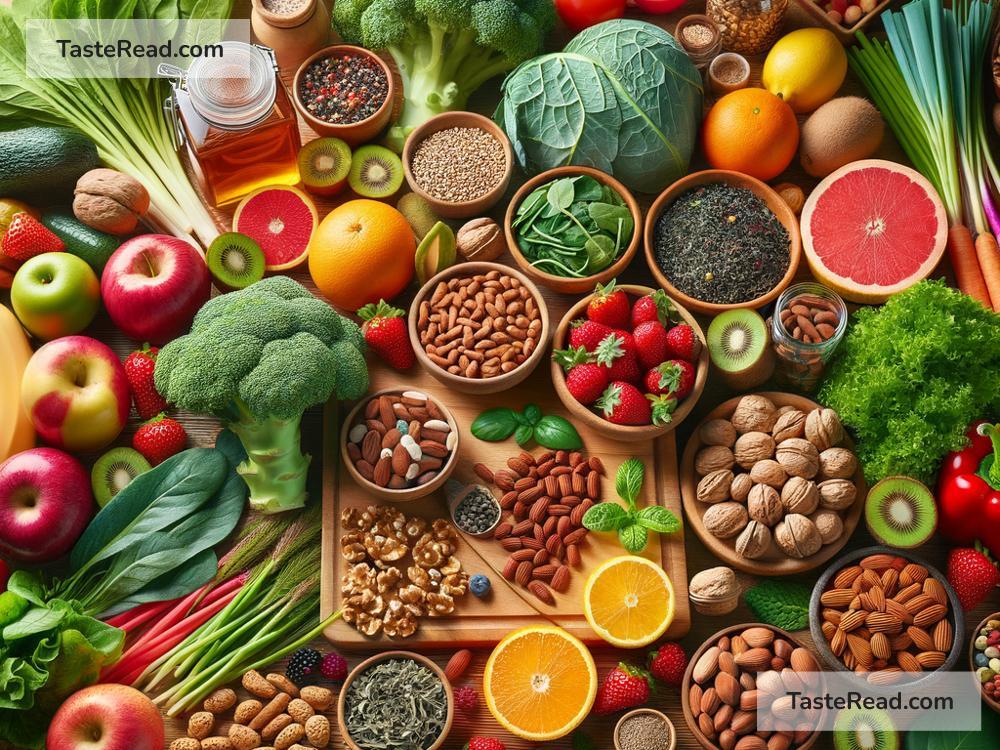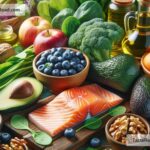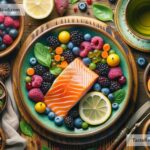Foods for Reducing Stuttering: Can Diet Help?
Stuttering is a speech challenge that affects many people around the world. It can make speaking difficult and cause frustration or embarrassment. While stuttering can have many causes—such as genetics, brain function, or emotional stress—some experts believe that diet might play a small but helpful role in improving speech fluency.
Although food alone cannot cure stuttering, eating certain kinds of food can support your overall health, brain function, and emotional well-being. So, let’s explore some foods that may help reduce stuttering or make it less disruptive, along with why they are beneficial.
1. Healthy Fats: Brain Boosters for Better Speech
Your brain plays a big role in how you speak, so eating foods that support brain health is essential. Healthy fats, like those found in avocados, nuts, seeds, olive oil, and fatty fish (like salmon and mackerel), can improve your brain function. They contain omega-3 fatty acids, which support memory, focus, and clearer thinking. When your brain is working its best, speaking might feel smoother and easier.
For kids or adults who stutter, adding these foods to their diet may improve overall mental clarity. Consider enjoying a handful of almonds or walnuts as a snack, or including more fish in your weekly meals.
2. Whole Grains: Keeping Energy Steady
Whole grains, such as brown rice, quinoa, whole wheat bread, and oats, provide a steady source of energy. Your brain requires fuel to function properly, and if your energy levels drop too low during the day, it can make speech and thinking harder. Whole grains are rich in vitamins like B-complex vitamins, which are important for brain health.
People who stutter might benefit from eating whole-grain foods, as they help keep their energy stable and prevent feelings of fatigue or brain fog that can make speech seem harder.
3. Magnesium-Rich Foods: Relaxing Muscles and Mind
Magnesium is a mineral that helps relax muscles and reduce tension in the body. Many stutterers experience tightness or awkwardness in their facial muscles when speaking, so magnesium could play a helpful role in calming those muscles down. It also helps regulate the nervous system and can reduce stress—both of which may contribute to smoother speech.
Foods high in magnesium include spinach, bananas, pumpkin seeds, avocados, dark chocolate, and legumes like lentils. Adding these to your diet doesn’t just improve your speech; it supports overall relaxation and health.
4. Vitamin B-6 and B-12: Supporting Brain Signals
Some experts think that stuttering might partly be connected to how the brain sends signals to the speech muscles. Vitamins B-6 and B-12 play a role in supporting these signals, making communication between your brain and body more effective. They also help keep your nervous system healthy.
Foods rich in B vitamins include eggs, chicken, beef, potatoes, and fortified cereals. Vegetarians or vegans can get B-12 from fortified plant-based milk or supplements if needed. A healthy nervous system can make speaking feel smoother and more natural.
5. Probiotic Foods: Gut-Brain Connection
The health of your gut—where food is digested—affects far more than your stomach. Research is increasingly showing that gut health is closely linked to brain health and emotional well-being. For people who stutter, managing anxiety, stress, and mood can often help reduce their symptoms. Probiotic foods like yogurt, kefir, kimchi, sauerkraut, and miso may support gut health and improve overall brain function.
By balancing the good bacteria in your digestive system, probiotic foods may also reduce anxiety, helping people who stutter feel more relaxed when speaking.
6. Hydrating Foods: Keeping Your Speech Clear
Hydration is key to good speech. When your body and voice are well-hydrated, talking feels smoother and less strained. Dehydration can cause dryness in the mouth and throat, making speech uneven or difficult. Eating foods high in water content—such as watermelon, cucumber, celery, oranges, and berries—can keep you hydrated naturally.
Of course, drinking plenty of water throughout the day is always a great choice as well!
7. Foods That Reduce Stress: Building Confidence
Many people who stutter find that their symptoms get worse when they are stressed or anxious. Certain foods are known to naturally reduce stress and promote relaxation. These include herbal teas (like chamomile or green tea), dark leafy greens (like kale or Swiss chard), and berries (like blueberries and strawberries). These foods are rich in antioxidants that fight inflammation and calm your nervous system.
When you feel less stressed, speech tends to feel easier, smoother, and more confident.
A Balanced Diet is Key
While no single food can stop stuttering, eating a balanced diet full of fresh, natural ingredients can help your body and brain function at their best. Focus on a mix of whole grains, fruits, vegetables, healthy fats, proteins, and plenty of water. Avoid highly processed foods, sugary drinks, and junk food—they can make you feel tired, stressed, and unfocused.
It’s also important to remember that stuttering is complex. Diet is just one piece of the puzzle. Speech therapy, mindfulness exercises, and emotional support can all make a big difference, too.
Final Thoughts
Food alone isn’t a cure, but it can be a tool. By eating brain-boosting, stress-reducing, and hydrating foods, people who stutter may feel calmer, more confident, and better equipped to face their speech challenges. Take small steps to improve your diet and notice how it impacts your speech and overall health. With the right food and support, speaking can feel a little more natural every day!


